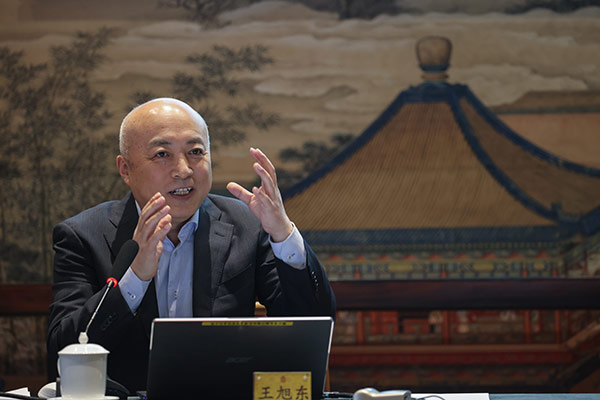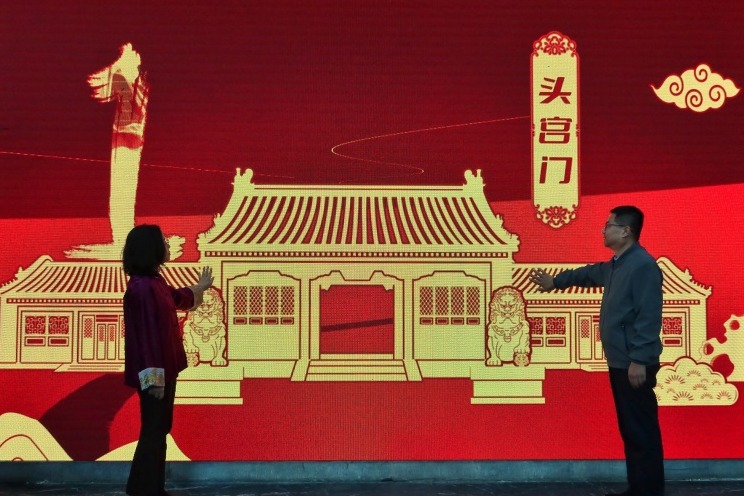Imperial measures


New policy set to improve visitor experience and ensure preservation of the Forbidden City, Deng Zhangyu reports.
The Palace Museum in Beijing, also known as the Forbidden City, and the world's biggest surviving palatial architectural compound, will limit the daily number of visitors to 40,000 in future to ensure better tourism experience. It will mark a 50 percent drop from the 80,000 daily visitors in 2019, Wang Xudong, director of the museum, said on April 16.
"The cap on the number of daily visitors is cautiously calculated to allow tourists to better enjoy the palace," said Wang at a news conference held by the All-China Journalists Association. More than 40 news media outlets, including 30 from overseas, took part.
In 2019, the museum that houses a collection of more than 1.8 million cultural relics saw a record number of visitors: 19.3 million. However, it dropped to about 3 million last year due to the COVID-19 pandemic.
As the pandemic has been gradually brought under control in the country, the number of daily visitors has risen from 3,000 last May to the current 30,000. The future cap of 40,000 will be maintained even if the actual tourist demand is significantly higher.
Wang says the museum is trying to employ digital technology to let people who can't come in person to experience the beauty of the UNESCO World Heritage Site, such as livestreaming and online exhibitions. Last April, the museum livestreamed several tours of its flower gardens, attracting millions of viewers online.
"I think livestreaming is a revolutionary way for museums to communicate with the public," he says. Before taking up his role at the Palace Museum in 2019, for 28 years Wang was the director of the Dunhuang Academy, which houses some of the finest Buddhist art in China.
To control the number of tourists is good not only for the visitors' overall experience, but also for the protection of the 600-year-old imperial architectural complex, which is built of wood and earthen bricks, according to Wang.





































